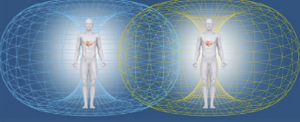Before I started my counselling and psychological training, I considered myself logical, practical and empirical. I thought that I was intellectually compassionate, articulately skilled and communicatively empathic. While that may be true, I later realised that I was ‘mind-identified’ and I am more than my mind.
I used to live in my head, and the majority of my decisions were made from cognitive rationale and intellectualisation. In so doing, I relied on the thinking mode to process, analyse, and make sense of things. I believe that we were conditioned and measured by our intellects, especially in educational establishments such as school, college and universities etc. It is the most tangible method of measurement in modern societies, it seems. But, it goes deeper than that. We were also taught in the family system, perhaps unconsciously. Remember the time when your parents make a comparison of your achievement against your siblings?
However, that may be, I think that the cognitive mind is just one part of the physical body. I believe that our physical body is the vehicle of the spiritual body. Both parts reside unanimously and cooperative as one harmonious dualistic being. Their composites are like the Taijitu duo, the yin and yang.
 As a psycho-spiritual therapist, I believe that the physical body has two ‘minds’; the cognitive-mind and the heart-mind. Therein, the brain is the cognitive-mind, and the heart is the heart-mind. It might help if you think of the brain as the all-knowing ‘supercomputer’. Memories, experiences, and programmings are stored. Thus, the heart is the ‘operator’, the user, the decision-maker. Imagine making your decisions from the heart. Henceforth, I want to discuss the concept of heart-mind further because I believe that this is the primary and the brain is secondary.
As a psycho-spiritual therapist, I believe that the physical body has two ‘minds’; the cognitive-mind and the heart-mind. Therein, the brain is the cognitive-mind, and the heart is the heart-mind. It might help if you think of the brain as the all-knowing ‘supercomputer’. Memories, experiences, and programmings are stored. Thus, the heart is the ‘operator’, the user, the decision-maker. Imagine making your decisions from the heart. Henceforth, I want to discuss the concept of heart-mind further because I believe that this is the primary and the brain is secondary.
Researchers had proved that during the mitosis in the cell division process, after conception, the heart is the first organ to form in utero. As the primary organ, the heart developed a complex circuitry system using bloodstream to obtain nutrients and eliminate wastes to be transported to and from the embryo and the mother for growth. As the embryo develops further, other organs and system formed to complete the human evolutionary process, and the foetus is formed. It is not until after four weeks after conception that the neural tube is connecting the spinal cord to the brain to complete the foetus’ circuitry system. After which, the heart begins to beat. Therefore, the heart is more than a mere ‘pump’. It is from the heart that your emotions are associated.
Although the concept of the heart-mind is not something new to metaphysics, it is less well known generally. When I began my training as the Body Code practitioner, I appreciated energy works and energy from the heart.
 The heart has an energy centre known as the Heart Chakra or Anahata, is located near the heart area. The heart emits energy from the body. The electromagnetic field produced by the heart is more than 60 times greater than the brain. The auric field exerts about 12 feet outwards. The heart is symbolic to love, compassion, kindness, warmth and much more.
The heart has an energy centre known as the Heart Chakra or Anahata, is located near the heart area. The heart emits energy from the body. The electromagnetic field produced by the heart is more than 60 times greater than the brain. The auric field exerts about 12 feet outwards. The heart is symbolic to love, compassion, kindness, warmth and much more.
If we can relate to people from the heart, image what that would be like. If you can find a way to relate to others with the heart, how would you feel?
Personally, for me, this means deep empathy and loving feelings. I am talking about unconditional love, pure love, without any peremptory request or demand. You might want to understand your love language before you carry on reading.
When your heart-mind emits love and compassion, in accordance with the natural order of the universal law, specifically, the law of attraction, love will return to you, as it is received by another. You will notice signs of love in another person’s eye, and you will feel the emotions.
How do you listen to your heart-mind?
- Ask yourself, how do you make decisions?
 If you use your mind to think about making a decision, it is safe to say that you are not as connected to your heart-mind. If you take time to ponder a decision or find it difficult to make up your mind, you are probably mind-identified. Decision-making from the heart-mind often comes from a ‘feeling’ or an intuition. The heart is our source of love, creativity and inspiration. Sometimes, decisions from the heart are illogical, baseless, spontaneous and impulsive.
If you use your mind to think about making a decision, it is safe to say that you are not as connected to your heart-mind. If you take time to ponder a decision or find it difficult to make up your mind, you are probably mind-identified. Decision-making from the heart-mind often comes from a ‘feeling’ or an intuition. The heart is our source of love, creativity and inspiration. Sometimes, decisions from the heart are illogical, baseless, spontaneous and impulsive.
Before completing my MA, I attended a workshop from sheer curiosity. By the end of the day, my mind was made up to participate in the training programme. I’d made my decision based on a feeling. I did not consider how I was going to finance the studies or whether I could afford it. My application went in, and when it got accepted, the realisation of cost, time and commitment came into play.
- Ask yourself, how do you feel about x?
 Place your hand on your heart and literally listens to the harmonious, rhythmic heart beating. It should beat in a gentle rhythm, the soft sounds of the tempo should be melodic and not like an offbeat syncopation. Listen to your gentle, beating heart and notice your senses. Do you feel any tingling, flood of warmth or goosebumps? These are the sensation of energy moving through your body, surging and filling you with good feelings. A loving feeling has the highest frequency, as mentioned in last month’s blog.
Place your hand on your heart and literally listens to the harmonious, rhythmic heart beating. It should beat in a gentle rhythm, the soft sounds of the tempo should be melodic and not like an offbeat syncopation. Listen to your gentle, beating heart and notice your senses. Do you feel any tingling, flood of warmth or goosebumps? These are the sensation of energy moving through your body, surging and filling you with good feelings. A loving feeling has the highest frequency, as mentioned in last month’s blog.
If you have children, you should feel a mother’s love for a child. It is the truest, selfless love. It is often boundless, and there is nothing you would not do for that child. It is non-obsessional, non-sexual, healthy and unconditional. In an ideal world, this is the loving feeling that should experience growing up.
More often than not, our experiences are less than ideal. But, this does not mean that we can’t learn to connect to that unconditional love within. We can learn to love our inner child. However, If you find it challenging to feel unconditional love, perhaps you have a ‘heart wall’. A heart wall is a blockage to the heart. It is a (metaphorical) wall that we put up to defend ourself from heartaches. If you suspect that you have a blockage to the heart and love, you might benefit from emotional code sessions.
- Learn to speak from the heart
 Speaking from the heart will inevitably help. It may seem awkward and strange at first, but you will become more comfortable with practice. Speaking from the heart is not about talking ‘mushy’, over-sentimental or pretentious, but preferably with genuineness and sincerely. Speaking with feeling is speaking from the heart. It is about speaking your truth.
Speaking from the heart will inevitably help. It may seem awkward and strange at first, but you will become more comfortable with practice. Speaking from the heart is not about talking ‘mushy’, over-sentimental or pretentious, but preferably with genuineness and sincerely. Speaking with feeling is speaking from the heart. It is about speaking your truth.
You might find it helpful to name the emotion and how you may feel when you convey it. For example, think of the word ‘nervousness’. As you think about this emotion, consider how it might also be to feel it in the body in response to feeling nervous. You might be nervous when speaking up in a room full of people or in a large group. As think about the things that you make you ‘nervous’, also, say ‘I am nervous about…because…’. In our example, you might say, ‘I am nervous about speaking up in a large group full of people’.
Say this a few times until you can really feel the emotion and feeling nervous. In your inner body, you might hear your voice becoming shaky, trembling a little bit. In your outer body, you might start to feel the bead of sweat running down your back and becoming flush or hot.
Have fun with the experience and try using other emotion and feel different intensity which different feeling convey. When you can elicit a sentiment of your words, you’d have mastered ‘speaking’ from the heart. Well done!
- Use the I/Thou language
 When you speak to others, notice your language, the word you use and in what context. If you can relate to others from an adult to adult, not from an adult to a child or a parent, you are halfway to using the I/thou language. This concept simply means speaking to someone compassionately while taking responsibility for your feeling, words, and language. Here is an example of an I/though language:
When you speak to others, notice your language, the word you use and in what context. If you can relate to others from an adult to adult, not from an adult to a child or a parent, you are halfway to using the I/thou language. This concept simply means speaking to someone compassionately while taking responsibility for your feeling, words, and language. Here is an example of an I/though language:
I – When you shout, I find it difficult to understand you fully, and it hurts my feelings.
Thou – Although, you are shouting at me, and blaming me. I strongly object, and I do not take it personally. But I also feel angry and hurt at the way I am treated by you.
I know it is challenging in a situation when you are at the receiving end of a barrage of emotional attack. Suppose you can address the problem objectively, without taking it personally. In that case, it is the best way to get your point across.
- Watch your conscious and unconscious thoughts
 This is probably the most important tip. Believe it or not, but your thoughts are being heard by others. Even if you never speak it, what you think about consciously is being received ‘telepathically’ by the other person. We unconsciously broadcast the ‘unspoken’ conscious thoughts into our energetic field.
This is probably the most important tip. Believe it or not, but your thoughts are being heard by others. Even if you never speak it, what you think about consciously is being received ‘telepathically’ by the other person. We unconsciously broadcast the ‘unspoken’ conscious thoughts into our energetic field.
Have you ever wonder why a bully picks on someone? It is because they are attuned to receiving the negative self-abuse from others. Suppose you consciously think about being hurt by others, feeling insecure and unsafe with another. In that case, you are sending out negative broadcasts. This could also be conveyed in your body language and body posture.
Negative broadcasts are something that I am aware of. Still, I was unaware that even though I thought of myself as altruistic, I was broadcasting, ‘I am unimportant’, and ‘I am not safe’. These vibrational frequencies were stuck within the body, which I had to eliminate through energy clearing.
Now that you have an awareness that our conscious and unconscious thoughts impede speaking from the heart – watch what you think. As the messages are broadcast, like a radio tower. Your heart cannot communicate soulfully.
I hope that this blog has been helpful, and if you would like more details about energy work or energy healing, please contact me for more information.
If you would like a personal experience of an energy healing session, please visit Energy Works for more details.
“Thinking about love is not the same as having loving feeling. Thinking about love is an idealisation. But, feeling love is unconditionally so powerful that no word is necessary.” – Patch Welling.
Do you find this blog helpful? If you like this post, I love to hear from you on my Twitter Page.

